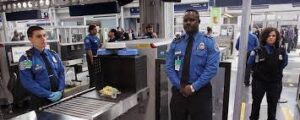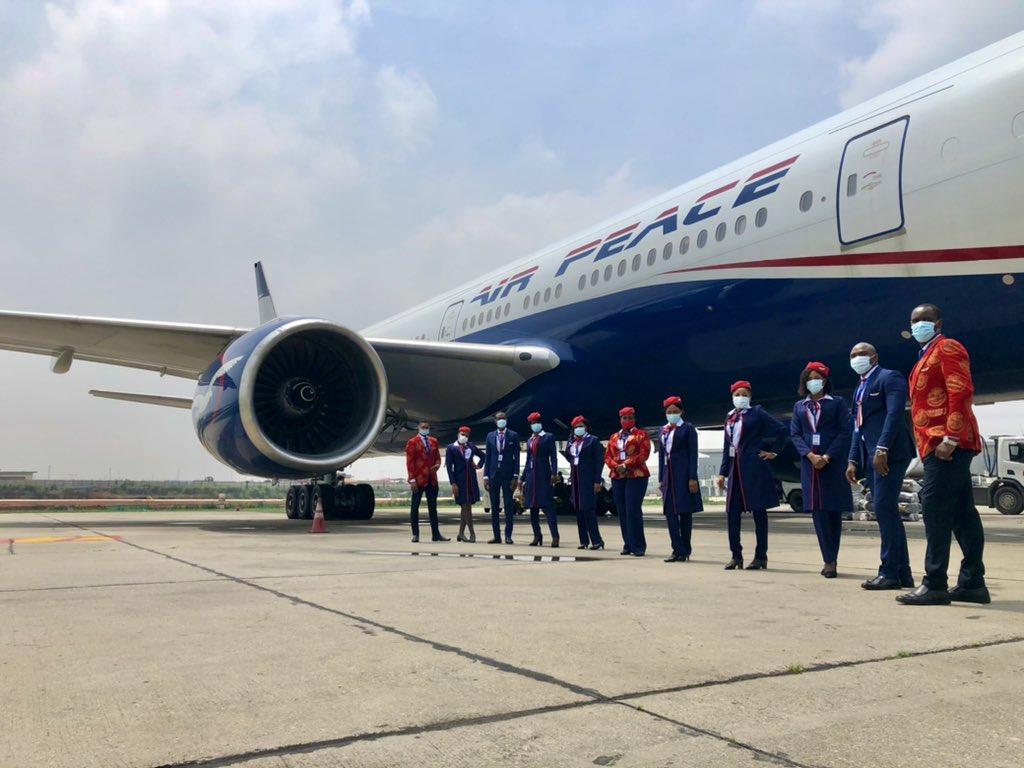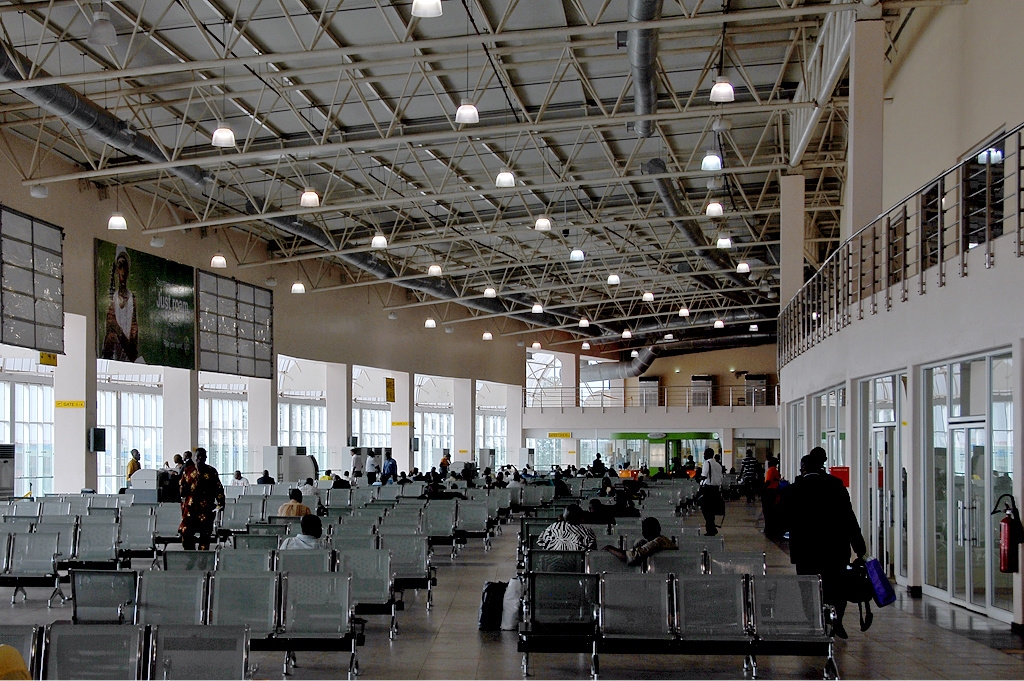
Without recurrent training, continuous engagement of manpower and deployment of state-of-the-art equipment, airport security can easily be compromised.
There are two critical areas of air transport that seem interwoven. These are security and safety. Aviation safety is described as a step towards the prevention of accidents and incidents in the aviation industry. Safety is mostly wrapped around the aircraft and flight operations; how the aircraft can take off and land safely.
But security in the aviation industry refers the protection of lives, equipment and property around the airport environment. It encompasses overall security of travellers, airport users, aircraft and other equipment and facilities at the airport.
According to the International Air Transport Association (IATA), aviation security risks and threats evolve rapidly and manifest themselves in different forms. Some of the key threats can include ‘Insider threats’/ ‘known insiders’ who work in the industry whose presence does not arouse any suspicion.
They present potential internal risks to airlines; civil unrest impacting aircrew during their layovers away from their home base; flights operating in the vicinity of airspace with conflict zonesone-wolf and terrorism incidents compromising security. There is also human trafficking, inadequately documented passengers, contraband smuggling passengers and others whose activities call for concern due to their various degrees of risk.
Airport security is a critical component of the global effort to protect passengers, staff, and infrastructure from terrorist threats. With the ever-evolving nature of terrorism and the increasing complexity of threats, airports around the world have developed sophisticated security protocols and technologies to ensure that the skies remain safe.

Challenges
In a recent conference held in Lagos, stakeholders in the aviation industry came to the conclusion that Nigeria’s airports are vulnerable to security breaches due to obsolete equipment and paucity of well-trained staff and called for deployment of modern equipment, introduction of new security architecture and manpower development.
At the meeting, the Managing Director of the Nigerian Airspace Management Agency (NAMA), Farouk Umar Ahmed, confirmed that many airport and airspace facilities in Nigeria are yet to benefit from modern security technologies, noting that obsolete screening systems, inadequate perimeter fencing, poor surveillance coverage and limited access control systems expose key installations to avoidable threats, adding that the integration of physical and cyber-security systems remains suboptimal, limiting the ability to detect, deter, and respond to security breaches in real time.
Ahmed, who was represented by NAMA’s Director, Legal Services, Rita Egbadon, lamented that lack of synergy among security agencies, despite the shared responsibility for securing aviation infrastructure and coordination among security agencies remain weak.
He decried that the absence of structured inter-agency communication channels, overlapping mandates, and fragmented incident response mechanisms continue to compromise the effectiveness of security operations at airports, adding that the absence of synergy delays critical decision-making and hinders unified responses to security threats.
Ahmed emphasised that the critical role of aviation security personnel is undermined by insufficient training, poor remuneration, and limited opportunities for career development.
“Several frontline officers are not conversant with evolving international security standards, while low morale continues to affect performance, vigilance, and professionalism. A growing concern is the deployment of inadequately qualified individuals into sensitive aviation security positions. These appointments often bypass necessary screening, certification, and background verification processes required by ICAO Annex 17 and national civil aviation regulations. The result is a vulnerability in the leadership and execution of security protocols at airports and related facilities,” he explained.
Security Task Force
He suggested that there is a need to put in place a joint aviation security task force and create a National Aviation Security Coordination Framework, anchored by the Federal Airports Authority of Nigeria (FAAN) and regularly inspected or audited by NCAA, to drive seamless collaboration among all security stakeholders.
This task force, he suggested, should convene regularly to share intelligence, develop joint action plans, conduct simulations, and issue coordinated advisories, saying that there is the need to prioritise investment in security infrastructure, suggesting that the federal and state authorities should partner with the private sector to invest in modern aviation security equipment.
Such equipment, he said, should include biometric access systems, smart surveillance solutions, integrated command centres, and advanced threat detection tools.
“Funding mechanisms should be developed to ensure sustained upgrades and maintenance. Adopt a comprehensive capacity building and incentive programme security personnel should undergo recurrent training accredited by ICAO (International Civil Aviation Organisation) and relevant bodies. Training must cover not only physical security but also cyber security, behavioural detection, and emergency response Additionally, structured motivation frameworks- including health benefits, hazard allowances, and career progression plans-should be introduced to retain top talent,” Ahmed further explained.
Security Measures
In his presentation titled, “Fundamentality of Aviation Security in Achieving Safe Skies Goals,” the former Director General of Nigeria Civil Aviation Authority (NCAA), Dr. Harold Demuren, recalled that Nigeria was proactive in aviation security as early as 1992, even before the 9/11 attacks, by recruiting and training specialised security officers to protect civil aviation from unlawful interference.
He noted that the events of September 11, 2001, and subsequent incidents-such as the 2009 Abdulmutallab “underwear bomber” case-exposed new vulnerabilities and forced a global rethink of aviation security measures.
Demuren noted that Nigeria responded by installing CCTV cameras and enhancing screening procedures, but acknowledged that gaps remained, particularly in technology and staff training.
He emphasised that continuous investment in advanced screening systems, such as 3D body scanners, and the integration of cyber-security protocols are now essential, as threats have evolved to include not only physical attacks but also cyber, biological, and insider risks.
The aviation expert warned that terrorists often have the advantage of time, resources, and willingness to exploit insider threats, making it critical for aviation authorities to implement regular staff profiling, background checks, and timely sharing of sensitive information.
He therefore called for the elimination of rivalry among agencies, stressing that collaboration and information sharing between regulators, airlines, security agencies, and private providers are vital for effective security architecture.
He also emphasised on continuous training of Aviation Security personnel to boost security culture rooted, enhance vigilance, and technological innovation that align with international best practices and ICAO standards.
Terrorists
Demuren who was also President ICAO 37th General Assembly, said the advantage terrorists have, which those fighting them did not have is time to plan.
He said that terrorists exploit global vulnerabilities with deadly precision and urged aviation security operatives not to underestimate these advantages the terrorists have.
He outlined multiple categories of threats to civil aviation. These include illegal entry, document fraud, human trafficking, and persons suspected to be terrorists. Weapons such as arms, ammunition, and explosives also remain common dangers. Furthermore, he highlighted smuggling of illicit drugs, stolen items, and hazardous goods as additional concerns.
According to him, traditional threats like homemade explosives and improvised explosive devices (IEDs) are still relevant. However, modern attacks now include person-borne and vehicle-borne IEDs. Some attacks occur even from a distance using remote methods, adding that small arms fire and chemical threats, including toxic agents, have further complicated aviation security.
Demuren also emphasised risks posed by the use of small aircraft in attacks. He said planes may even be used as weapons themselves. Attacks on terminals and perimeter breaches are rising. These also point to the need for smarter, more coordinated countermeasures.

Policy Review
The stakeholders called for review of policies that guide the operations of security agencies at the airports, emphasising that to overcome the growing challenge of security in air travel, there should be collaboration and intelligence sharing by security operatives at the nation’s airports.
Nigeria Immigration Service (NIS), Nigeria Customs Service (NCS), the National Drugs Law Enforcement Agency (NDLEA), the State Security Service (SSS) and the Aviation Security (AVSEC), have statutory roles they play in maintaining security at the airports.
The Director General, NCAA, Captain Chris Najomo, in his address, said the aviation industry was the lifeline of global connectivity by acting as a key enabler for commerce, cultural exchange and economic development.
Najomo stated that with these opportunities come increasingly-evolving threats of cyberattacks, terrorism, insider-threats, unmanned aerial systems and the intricate dilemmas of cargo, passenger and airport security.
He said the threat towards the industry was constantly changing, warning that any attack on civil aviation through any one of these means could be countered by the implementation of effective aviation security countermeasures.
He explained that to tackle safety threat in the sector, aviation security personnel must be competent, stressing that this could only be achieved through training, re-training and more training of the personnel.
He urged individuals and organisations in the sector to imbibe vigilance, be proactive in identifying and mitigating potential threats to civil aviation.
Collaboration
Najomo also canvassed for collaboration, information sharing among agencies and organisations and adoption of technology to counter terrorism and potential threat in the sector.
He said: “Information sharing and coordination among all stakeholders is essential in preventing and responding to security threats. No one can do it alone. Leveraging advanced technologies like biometrics, Artificial Intelligence, and cybersecurity measures to enhance security and efficiency.
“Adhering to international standards and national regulations to ensure consistency and effectiveness of implemented security measures is very key. These attacks against civil aviation can be countered by the implementation of effective aviation security measures and procedures, and of course, by competent personnel.”
The Managing Director of the Federal Airports Authority of Nigeria (FAAN), Mrs. Olubunmi Kuku, said the agency and the aviation industry had a commitment to reinforce aviation security and must be steadfast and adaptive in an era marked by evolving threats and rapid technological advancements.
“Through dialogues like this, where expertise, experience, and innovation intersect, we can collectively share strategies and frameworks that ensure safety without compromising efficiency. As we have converged to share insights and best practices, I am confident that our collective expertise will shape the future of aviation security in Nigeria. Our commitment to this critical aspect of aviation will undoubtedly contribute to the
safety and security of passengers, crew members, and the general public. We recognise the valuable contributions of all stakeholders, including regulatory bodies, airline operators, security agencies, and other critical stakeholders in maintaining the highest security standards,” she said.
In her contribution, Managing Director/CEO of Pathfinders International Limited, Mrs. Nkechi Onyenso, commended NCAA for organising the meeting on security at a time the global air travel is both a cornerstone of economic progress and a target of evolving security threats, stressing the need for robust, innovative, and collaborative aviation security measures.
“Pathfinders International Limited proudly stands with the NCAA, the Government of Nigeria, and stakeholders across the aviation sector in the pursuit of a secure and thriving aviation ecosystem. As a dedicated aviation security provider, our business is rooted in safeguarding the integrity of air travel through innovative security strategies, expert consultancy, training and workforce development, and operational readiness support.
“Over the years, we have been privileged to contribute meaningfully to this mission; delivering cutting-edge solutions that have strengthened security frameworks, elevated operational standards, and helped shape the safer skies we all rely on today. Our collaboration with the NCAA and other key institutions has not only strengthened aviation frameworks but also elevated national and regional standards in line with international best practices. Together, we have taken significant steps toward positioning Nigeria as a beacon of safety and security in the African aviation landscape,” she said.
She commended the NCAA for its visionary leadership, its commitment to safety, and for providing a platform for critical dialogue such as this.
“We reaffirm our unwavering support to the cause and look forward to continued partnership in building an aviation sector that is secure, sustainable, and future- ready,” she added.
Although the call for concerted effort to strengthen security could not have come at a better time, some industry observers have wondered why discussions on security at airports have never included quick passenger facilitation, noting that having DSS, Immigration and other security personnel screening every passenger has contributed to slow passenger processing. They suggested that security should be streamlined, supported by technology, and that Immigration should incorporate all other aspects of security, so that passengers passports could be checked by only one Immigration staff, as it is done in many other countries of the world.






